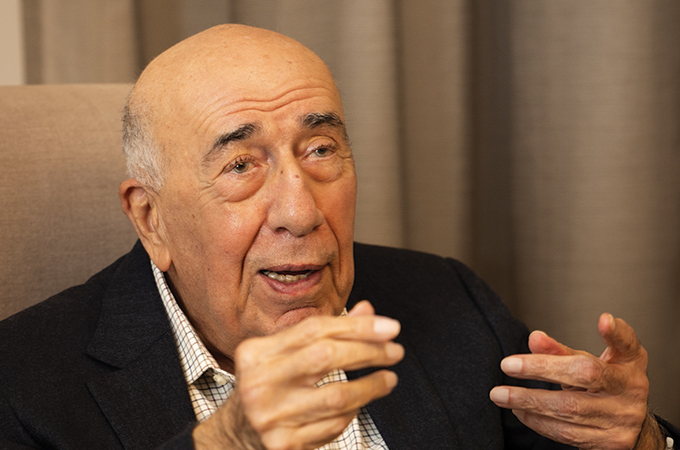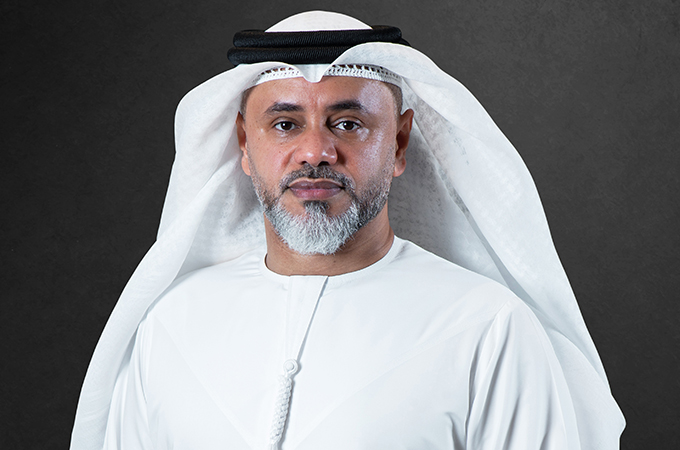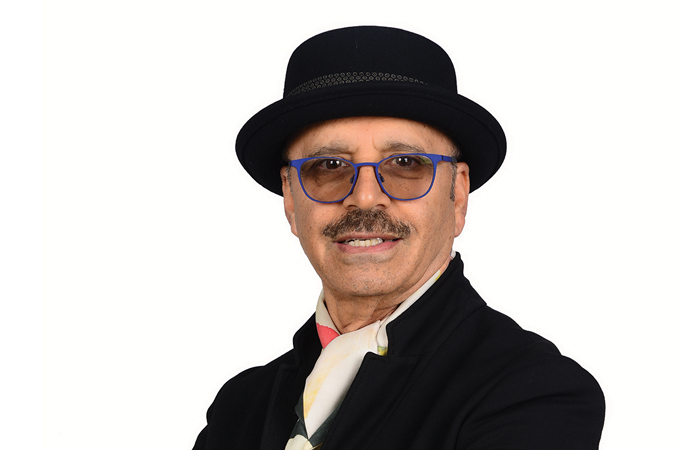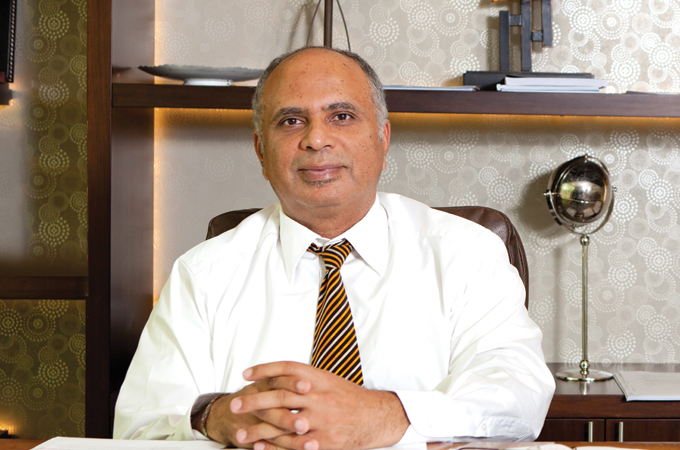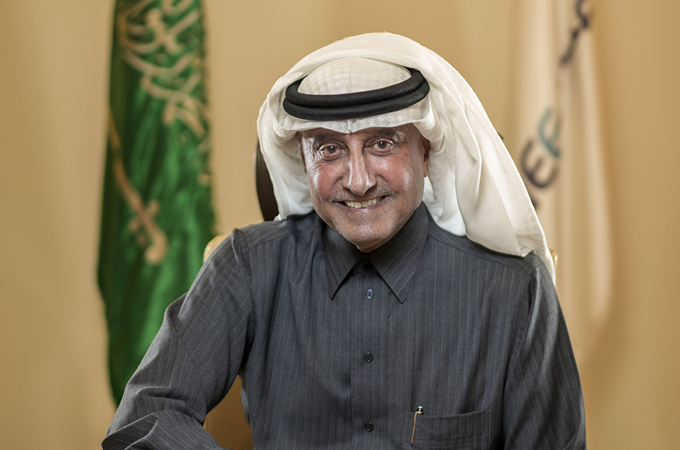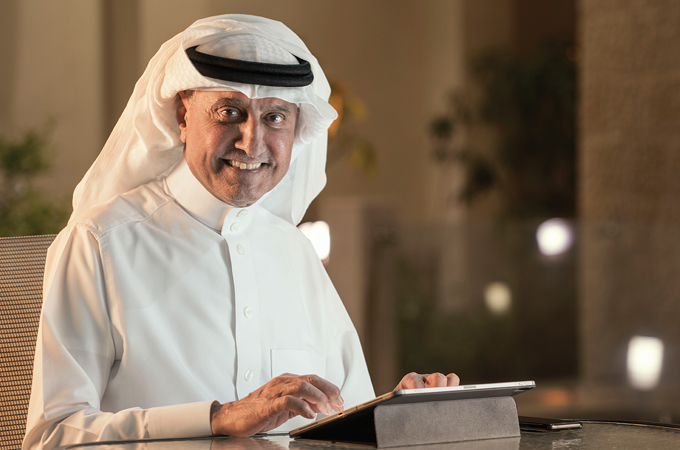Spring/Summer 2019
The technological and customer-centric changes are led by Hassan Amin Jarrar, a banker of immense repute and more than 30 years of experience in the region and afar.
Jarrar wears western clothes, he prefers to walk around the bank without a tie and with his shirt sleeves rolled up; he starts work at 6.30 am and cleans and maintains his vintage cars all by himself. In short, he defies the ‘norm’ for an Islamic banking professional; and for a top banker.
“Most people see Islamic banks as more traditional, more manual, docile and less creative. I am on a mission to change that thinking. We can be modern and at the same time be Islamic in values and character,” says the CEO of BisB, emphatically putting across his views in an exclusive interview with Arabian Knight.
In fact, he recalls raising several eyebrows when he decided to join BisB in 2015 (he was then the CEO of Standard Chartered in Bahrain). “When I jumped ship and came to the other side – from the conventional to Islamic banking – many of my friends, colleagues and clients started asking, ‘Are you joking?’ I was really taken aback by that question and I was offended too, for I had always lived my life according to the values of my faith though I kept my practice to myself,” he says.
Jarrar, born in Palestine and having had to move to Jordan at the age of six and then spent his childhood in Al Khobar and Makkah in Saudi Arabia, is well grounded in Islamic thought and values and quotes from scriptures to make his points.
“I realise that they expected an Islamic banker to look traditional. However, this gave me a bigger motivation,” he explains.
The banker, who had spent most of his time in conventional banking, says he was intrigued by the challenge of transforming the oldest Islamic bank in the country, from a classic, traditional institution into a market leader. And he is on his way to achieving this.
“I love this challenge, I want to make sure that this bank is known as a change agent. Banks are very conservative by nature and we are usually afraid to stick our neck out, but I want us to be able to try new things. Sometimes we may fail, but we must fail forward, as they say.”
Speaking on his selection for the job, he says BisB’s board wanted a drastic change for the bank as it was facing some major challenges at the time. The board wanted someone with a strong vision and who would actually change the destiny of the bank, maybe an “outsider” was the key to making such a change, he adds.
“I would like to think they may have liked what I did at Standard Chartered; a bit of my track record. I think they really saw in me someone who could change the direction of the ship. I hope I have proved them right,” he continues.
BisB has an excellent brand name and is the first Islamic bank in the kingdom and one of the first in the world. The bank has had its ups and downs over the last four decades. But Jarrar would like to spend less time on past laurels and more on what the future holds for the bank and the industry.
“I am one who recognises and acknowledges history. But given the situation in our region and where the world is going, as much as I am excited about the past of this bank, I am more keen to look into the future. I think this bank has got a fantastic future ahead of it; we are in the cusp of a huge revolution in our industry,” declares the dynamic leader.
Jarrar has big plans for BisB and they’re transformational. “I want to make sure that this bank, regardless of its size – we are still small – is recognised as a disrupter in the industry and as a trailblazer,” he affirms.
Recounting his early days at the bank, Jarrar observes it wasn’t easy and the challenges were more within the bank and he had to face a barrage of resistance as he began his strategy to change the culture prevailing in the bank.
“First, we started with the culture of the bank, what is called our DNA. No matter how much money you pour into machines and technology, if your culture is not adapted to it, it is not going to work. The change focused on what Islamic culture is really all about – hard work, transparency, respect for the client and fellow workers and always trying to do your best.
“We have completely transformed the way we work and our approach to business, creating an atmosphere that inspires creativity and idea generation. In each meeting, with each project, on a daily basis; we’ve embedded innovation at the core of what we do,” Jarrar highlights.
“Secondly, we went against the old norm of IT in a bank. We gave IT the responsibilities and tools so they became enablers, leaders in the change that we are undertaking, rather than a support service. A dream of mine is to transform the culture of the bank into one that thinks and acts like a technology company, not like a typical bank. I want our people to be creative and always try to do things better. Our ultimate objective is the end-user experience. How easy will our customers’ experience become in transacting business with BisB, that is the acid test,” Jarrar says emphatically.
He sees the business model of banking changing overall. “If I am to put it mildly, an avalanche of different forces is coming at us. Technology, regulation and shifting of customer preferences are some of them that banks need to come to grips with,” he continues.
“Our strategy for the next three years is to focus relentlessly on automating the bank and improving every process that we do. The aim is to create a seamless and simple customer user experience, which brings with it efficiencies, lower costs, better service and ultimately differentiates us from the competition. We are well on our way, but cultural shifts are the most difficult areas to achieve in any organisation,” he adds.
In the last few years, BisB’s digital ecosystem has achieved significant milestones through the modernisation and automation programmes implemented across the consumer banking network.
“We are constantly deploying state-of-the-art digital platforms and innovative product and service offerings with the customer in mind. By responding to the needs of our clients, and ensuring we keep pace (or stay ahead) with technological change, we ensure that we remain competitive in the new financial landscape,” says Jarrar.
The bank’s digitisation drive ushers in various benefits not only for its clients, but also for the industry at large. BisB is looking to continue to pursue artificial intelligence (AI) adoption in order to harness the power of data, which offers limitless opportunities moving forward, he adds.
“I am happy when people are pleasantly surprised about the innovations coming from an Islamic bank; they don’t expect an Islamic bank to be like that. By working the way we have, we are becoming a model for other Islamic banks, even conventional banks, to follow.”
To illustrate how responsive and efficient a bank should be, Jarrar gives the example of a smartphone. “When you pick up a smartphone, you assume that every touch will result in the desired action and 99.9pc of the time it happens. When it doesn’t, you are surprised. If banks become as good as a smartphone company, that means we have arrived. If our customers expect and receive a pleasant and simple experience every time, that means we have really become a very good bank. It’s a lofty target and at the moment, banks are far away from that,” he admits.
Jarrar reveals that BisB will remain a Bahrain-centric bank serving only the Kingdom for the short term and cross border banking isn’t in its current plans.
Just as he understands the need for major changes within the bank, he is also aware of the responsibilities that come with the name Islamic attached to the bank.
“Islamic banks need to work twice as hard, not only to do the basics, but to prove to the world that because you have ‘Islamic’ next to your name, you have a higher responsibility on ethics, transparency, respect and truth – all the values that every religious doctrine calls for; you should be held to higher standards than others, even conventional banks. And Islamic banks need to work on changing the image to one of innovation and openness,” he says without mincing words.
With all the challenges facing the world and the huge wave of Islamophobia in the West, Islamic banks have an extra responsibility to make sure that their conduct lives up to the name and they have to prove a lot of people wrong, he avers.
“When you go to the West and mention the word ‘Islam’ or say you are working for an Islamic bank, it always brings with it a bit of trepidation as to what the other side will think of you. This is an additional challenge we have to face on a daily basis and have to overcome. We need to be forward thinking, creative, innovative and absolutely squeaky clean in everything we do,” urges Jarrar earnestly.
“I cannot recall in my life time a more difficult period than this for Islam, and Islamic banking is part of that. Because we are the most visible, we have an extra responsibility. Our role is not just to make money for our shareholders and improve the lives of our people; we have a social responsibility to improve the image of the faith,” he continues.
Surely, Jarrar’s words mean a lot in the industry for he has three decades of experience in key management positions in leading banking institutions in the Gulf and the US. He has served as the Chief Executive Officer of Standard Chartered Bank, Head of Corporate and SME Banking at Abu Dhabi Commercial Bank, and Head of Corporate Banking, Abu Dhabi at Mashreq bank. He has extensive experience in various positions with Security Pacific Bank, and Bank of America in the US.
Now, it’s surely a fair question to ask the banking expert what are the milestones and successes in his 30-year banking career. Without batting an eyelid, he begins to talk about his failures!
“I probably failed as many times as I have succeeded. Every time I failed, I have learnt from it, I have picked myself up and moved forward. I had two major failures and they were not due to any weakness in technical skills; both of them were due to the fact that I lost sight of my moral compass, my values. I took shortcuts and compromised on my values. Both of them ended up in catastrophes,” he admits.
And as far as success is concerned, Jarrar says: “My proudest success is that I have been able to make a difference in the lives of a lot of people. Many people have worked for me, I am privileged that they believed in my vision because of the credibility I have enjoyed, which took a lot of time to establish. Credibility is binary – it’s black or white; there’s no gray. One’s credibility is a massive a blessing and a huge responsibility; you have to live up to people’s expectations, and if you don’t, then it will be huge let down.”
Jarrar becomes philosophical as he explains how success should not be measured by the material things one owns. “Because of the credibility I have established, people say I am trustworthy… to me that is enough. Ultimately, when I meet my Maker, if people say ‘he was a good man, God bless his soul’, that is enough; that’s success. Other things are material and don’t matter. It’s how proud my children will walk when their father’s name is mentioned. The rest doesn’t matter.”
Coming back to the banking sector, the veteran sees a big churn in the financiaI sector. Institutions are faced with the urgent need to be stronger in terms of capitalisation in order to absorb shocks. The regulatory environment where a lot of reporting requirements are made of banks is pushing costs up for banks.
“All over the world and more so in our region, banks are having to bear the huge cost of compliance (anti-money laundering and sanctions related). Small banks will find it very difficult to survive. Banks need to merge, make themselves bigger and able to absorb more shocks and deal with by having more resources and by achieving economies of scale and costs.”
FinTech is the buzzword in the market and no day passes without a workshop/forum on this around the region. Jarrar confides that “FinTech” is no longer a mere buzzword, governments are making huge investments in creating a digitally advanced society, especially in the financial sector.
“Banking is changing, and changing fast, it’s only a matter of time before traditional branches are completely phased out and banking will go fully digital, although it might take more than five years. The fact remains there is a learning curve, whether it’s in using a new phone or getting accustomed to using a digital branch, customers will learn to adapt; moreover, they are often at the driver’s seat in leading the direction of change,” says Jarrar.
So, what about jobs? Is the fear of large-scale job losses in the financial sector real? Jarrar admits job losses in the sector are likely to happen, but that’s not the end of the world, it could actually be the beginning of a new era.
“The world is entering a new era, where all these technologies will need support systems. For the first time in the last 20 years, graduates with degrees in humanities, such as psychology, sociology and anthropology, are in high demand from large tech companies for one simple reason that these companies need experts in human behaviour, demographics and psychology in order to facilitate all this digitization and technology. So, on one hand there will be job losses, but on the other, there are other fields that will open up. Yes, changes are coming, they are much bigger than all we can foresee. We cannot standstill, they will simply sweep us off.”
Armed with the experience and expertise that Jarrar possesses, he sits on boards of many institutions. He is on the boards of Bahrain Association of Banks, Bahrain Institute of Banking & Finance, Bahrain Bourse, Bahrain Economic Development Board, Tamkeen, and Thomson Reuters Mena Regulatory Advisory Board.
“At the end of the day, being on a board involves taking on the responsibility in an oversight position; it requires stepping back to see the ‘bigger picture,’ and playing an active role in ensuring the long-term success of the organisation by putting forward strategies, assessing and mitigating risks, and ensuring financial stability,” he reveals.
One last question before we let go of the busy banker who is already running late for his next appointment. What would he like to see change in the region that would give a major thrust to investment and growth?
“I would like to see the region transform in terms of individual institutions’ approach to business, by holding frequent discussions and debates with key business players coming together in pursuit of increased opportunities for investment and growth for the sector at large.
“Open and transparent collaboration ought to happen involving both the public and private sectors across industries – healthcare, education, finance, investment, transportation and telecommunications, and government regulators – to discuss the issues that stand in the way of progress and how to develop the necessary solutions,” he concludes.
– By Sree Bhat



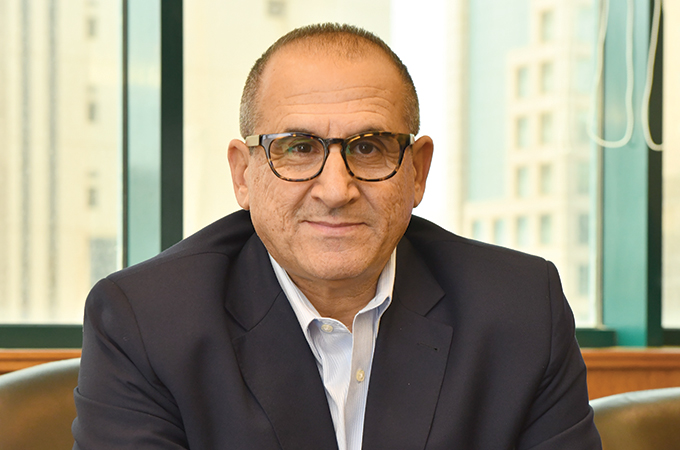
.jpg)
.jpg)
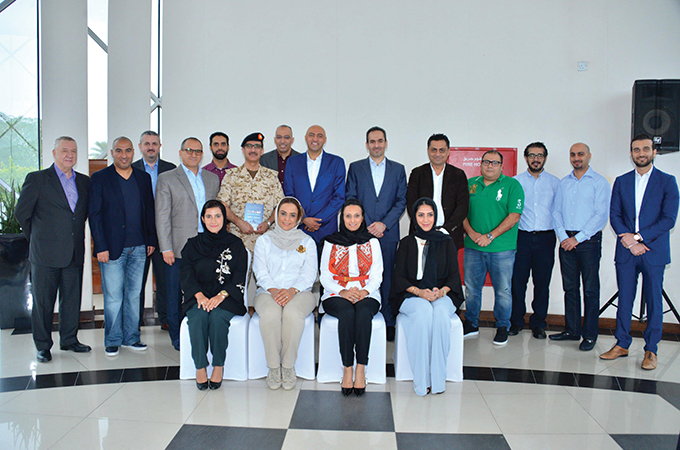
.jpg)
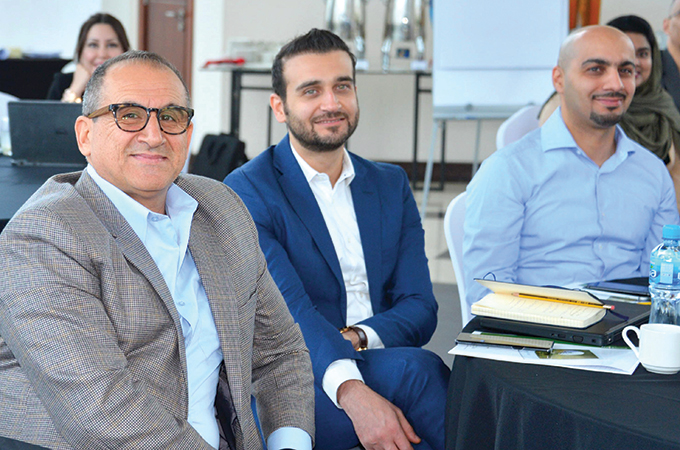
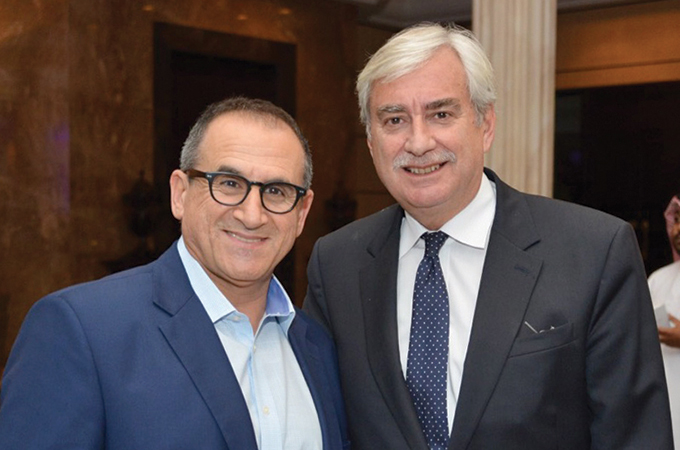
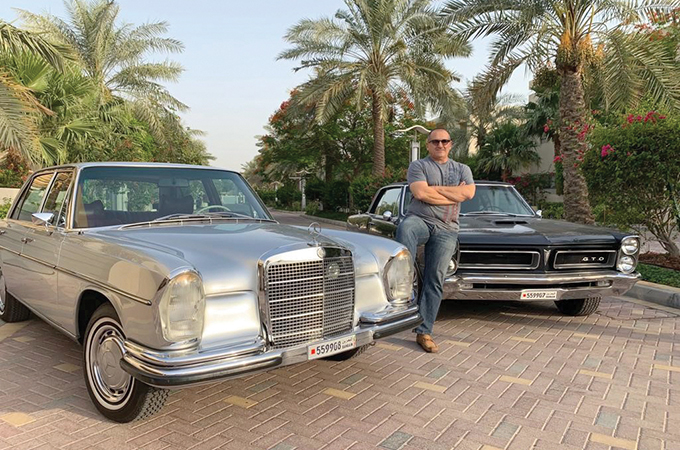
.jpg)
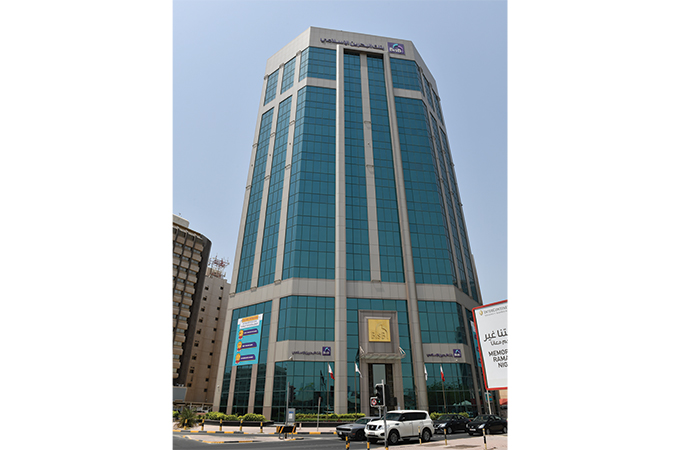
.jpg)
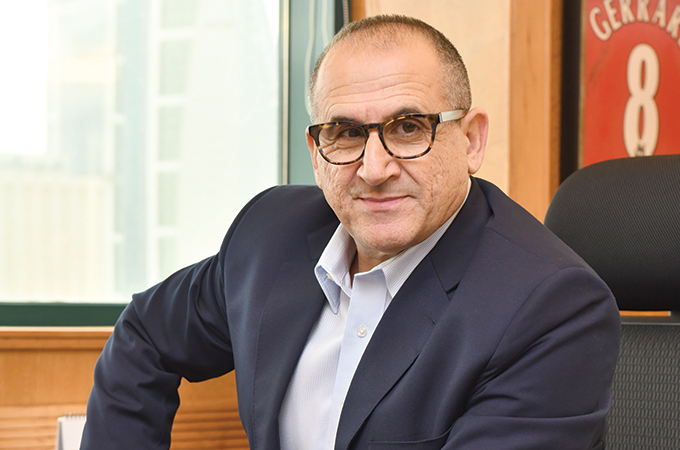

.jpg)
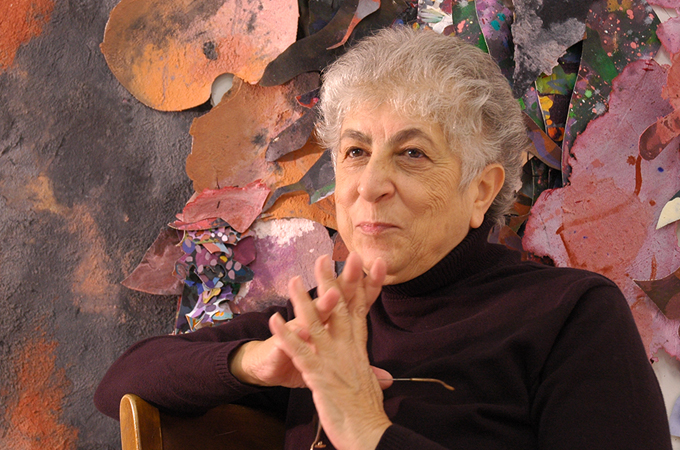
.jpg)
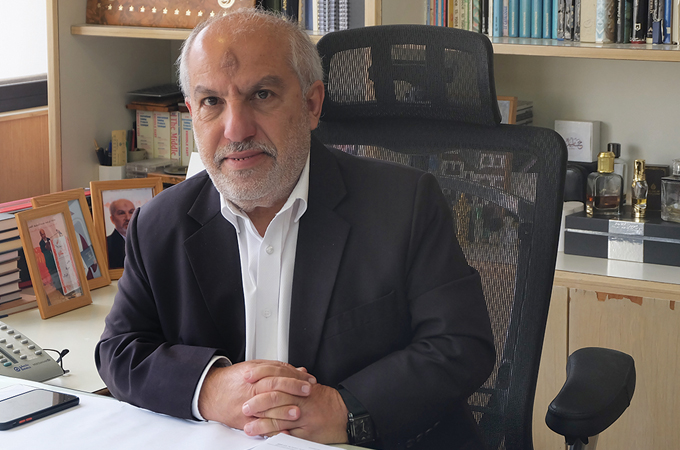
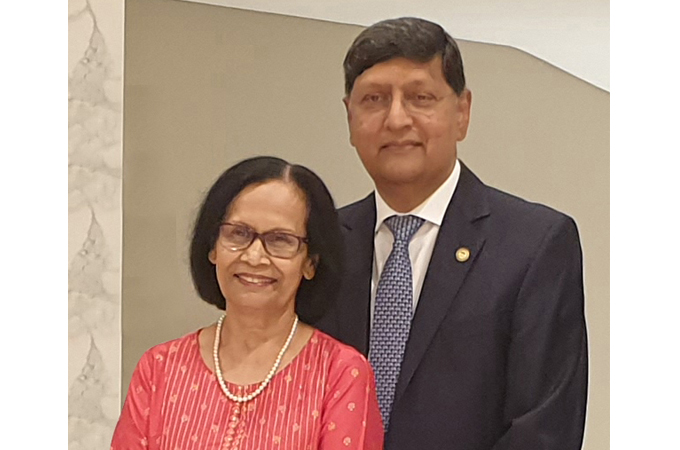
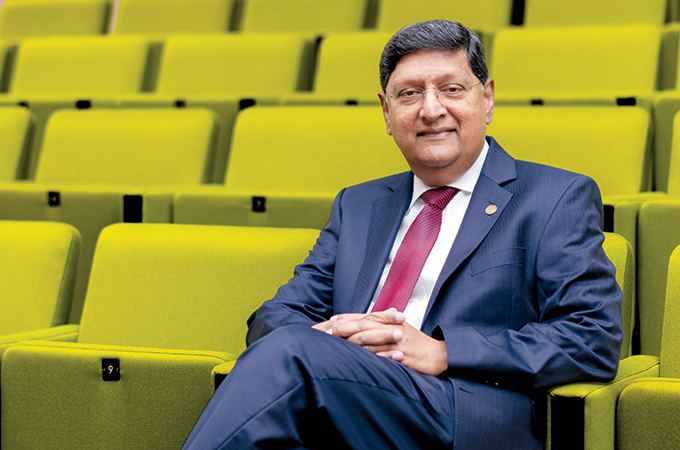
 B.jpg)
